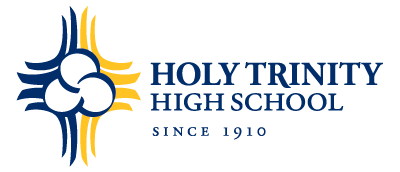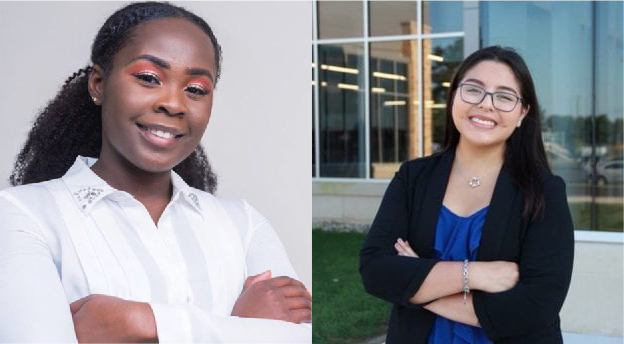On a typical afternoon, after the final bell rings for the day, you would expect to see students chatting in the halls, sharing their stories and opinions, or heading home to talk with family members about their day. But for students in Jordan Zeno-Ortiz’s Sophomore English class, conversations took on a whole new meaning.
Inspired by StoryCorps and generously supported by the Big Shoulders Fund, Sophomore English students completed their first Oral History Project in December 2017. They began by conducting practice interviews with family and friends. “The surprising that about doing this project was using the recorder, obviously,” says student Jose Vargas ’20. “It’s not like our phones. If you did something that wasn’t right, you had to restart the interview. We needed to get the whole interview in one take.”
These practices helped students build critical listening and interview skills, which they put to good use in their final projects, posted here.
“I’m incredibly proud of these fifty fifteen-year-olds for taking on the task in a truly genuine way. The projects turned out better than I ever could have expected,” says teacher Jordan Zeno-Ortiz. “I loved listening.”
Her students were also surprised by the process.
“I didn’t know I could ask good questions. I was surprised how curious I could be,” says Eric Sanders ’20. “I learned my mom really cares about education, more than I expected that she did. Now, education is more important to me and I am more motivated to go to school.”
For Linh Nguyen ’20, an international student from Vietnam, the project came with extra challenges. “I got scared when Ms. Zeno announced the project because I would have to find someone who speaks English,” she says. “Then I thought about my grandma. In Vietnam, we don’t have this type of project, so she was surprised to be asked. She told me a lot of things I didn’t know before, like her childhood and how special I am to her, and that’s really kind of her.”
“I think the most surprising thing is talking to the people you interviewed, getting their honest opinion of what you’re asking. You don’t really expect their responses sometimes,” says Paul Sefah ’20. “For example, asking a difficult question to your mom and her answering it differently from what you think her answer will be.”
During his interview, Paul learned that his mother’s happiest moment was when her children joined her in America. “I remember that moment, I was six years old. My mom left Ghana for America when I was two, so I really didn’t know who she was when I got here. I just saw my sisters go and hug her, and I thought, who is this lady that they’re hugging? But getting to know her was so fun. Now, we do everything together if we can.”
As Jose interviewed his mom, he was surprised by a revelation: While she had dreamed of becoming a nurse, she no longer thought that was possible. In that moment, Jose paused to encourage and affirm his mom. Looking back on his interview, Jose says he’s realized how similar the two of them can be, especially when it comes to feeling like they’re not good enough. That realization has changed Jose. “Seeing what she’s been through, how she’s been fighting and sacrificing things to make me happy, makes me want to sacrifice things so she can be happy and have the life she wants.”



